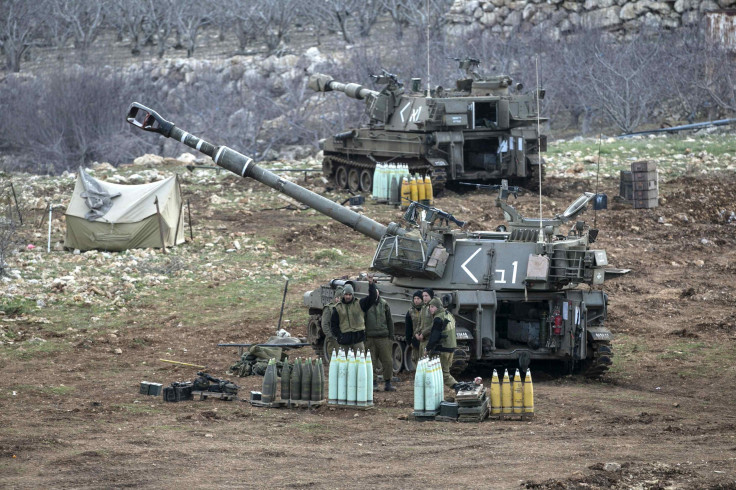Tit-For-Tat Attacks Between Hezbollah And Israel Won't Turn Into All-Out War, Experts Say

Tension between Israel and Iran-backed Hezbollah, a Shiite militant group in Lebanon, is growing, but an all-out conflict is unlikely, experts said. After tit-for-tat deadly attacks over the past week, many Lebanese feared that their country could once again be the battleground between Israel and Hezbollah, but neither party is likely to escalate the fighting into a war like the last one, fought in 2006.
“People here are in a tense situation. There is a lot of expectations about potential retaliation and expansion of conflict on our border,” said Imad Salamey, a professor at the Lebanese American University and author of “The Government and Politics of Lebanon,” speaking from Beirut. “Given the conditions, both parties are constrained. As of now, both parties can claim to have won.”
Hezbollah launched an anti-tank missile on an Israel Defense Forces convoy on Wednesday in a disputed border area in the north of Israel, killing two soldiers and wounding at least seven others. The IDF immediately responded with artillery fire, an IDF spokesperson confirmed to International Business Times. A United Nations peacekeeper was killed as a result. Although Prime Minister Benjamin Netanyahu promised “strong and responsible action,” the IDF could not confirm or deny plans for further retaliation.
Though Hezbollah, considered a terrorist group by the U.S. and the European Union, claimed responsibility for Wednesday’s attack on Israel's military, the decision to retaliate likely came from Tehran.
“Hezbollah is part of Iran. Hezbollah represents their national interests in the region,” Salamey said. "Hezbollah wouldn’t act as such without a close consultation with Iran. After all Hezbollah is a military brigade in the Revolutionary Guard,” one of Iran's military entities.
Wednesday’s attack may have been in retaliation for what some Israeli officials called a “preemptive” attack on a Hezbollah and Iranian convoy in the Golan Heights inside Syria last week. Several senior commanders including Brig. Gen. Mohammed Ali Allahdadi, the Iranian Revolutionary Guard commander in charge of Lebanon and Syria, were killed. The airstrike also killed Jihad Mughniyeh, son of the late military commander of Hezbollah Imad Mughniyeh, who was assassinated in 2008 in Damascus with a car bomb, possibly by Israel.
"They've [Hezbollah] been playing up the martyrdom of Jihad Mughniyeh," said Phillip Smyth, a University of Maryland researcher who studies Lebanon and Shiite militias. But to avoid the appearance of being too involved in the Syrian war, Hezbollah may tamp down its retaliation to the attack inside Syria. "Hezbollah doesn't want to appear that they're totally set in Syria, meaning that they cannot respond to their claimed prime enemy, which is the state of Israel," Smyth said.
Though Hezbollah claims its main enemy is Israel, it has stretched itself thin fighting alongside Iran’s allies in Syria and Iraq. On the home front, Hezbollah is coordinating with the Lebanese Armed Forces to push back Sunni jihadists on the Syrian border, which has become a hotspot for militants from the al Qaeda-affiliated Jabhat al-Nusra and the Islamic State group.
Since the start of the Syrian civil war, Hezbollah sent about 5,000 fighters to aid the regime in Syria; approximately 1,000 have been killed. What’s more, sanctions imposed on Iran by the West and the declining oil price hurting Iran's finances could limit Hezbollah’s funding, according to Newsweek.
“They’re fighting everybody,” said Smyth. "In terms of spreading their tentacles throughout Syria they’ve been building their own proxies … and reforming them all as micro-Hezbollahs.”
But that engagement on many fronts is precisely why, according to some observers, the recent attacks may not spiral into another war soon. “Given the conditions, both parties are constrained," said Salamey. “The costs of war are much higher than the cost of restraint at the moment.”
© Copyright IBTimes 2024. All rights reserved.












